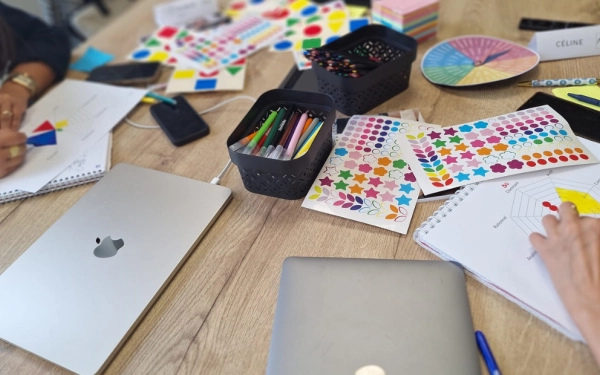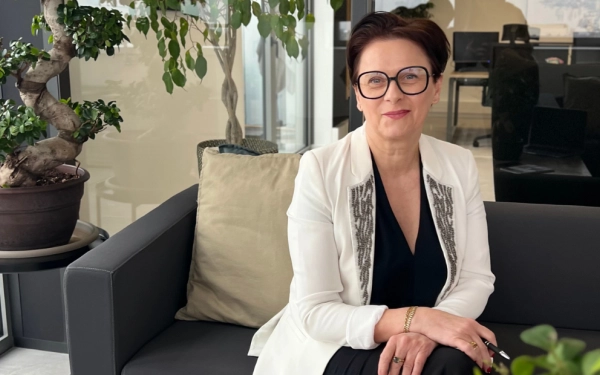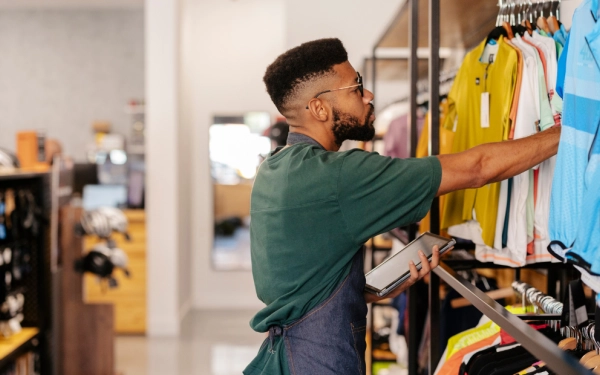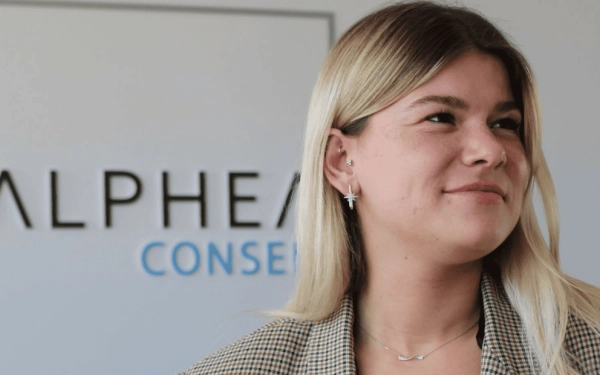
From basketball player to coach: the spark
It was as a top-level athlete that David Boon began his career. Until the age of 26, he played in the 2e national basketball division in Belgium. He then went into sales for major companies. He didn't know it at the time, but the business didn't suit him. In 2008, he felt that he was reaching the end of a phase in his career path: "I couldn't find myself in the corporate culture, nor in a world that was too technological for me. I was out of alignment with my values and no longer found meaning in what I was doing."
He then decided to give a new impetus to his career. "When you're not in the right place, you can be unhappy at work and feel that you're not competent, that you don't know your talents, that you're not revealing yourself." With the help of a coach, he identifies what drives him. That's when the spark ignited. has all the qualities of a coach. And he decides to train in the DISC and Insights models, which help identify people's different personalities and understand how they work.
The key to business: detecting your talents
Thanks to this professional hindsight and his training, he understands one essential thing: knowing yourself better enables you to function and perform better. This is what he now wants to bring to companies. Once certified as a DISC and Insights coach, David Boon became freelance. He accompanies and coaches managers and corporate teams. "I'm convinced that I can help someone find their way, be more aware of their talents and more fulfilled in what they do. It resonates with what I've been through."
And in 2019, David Boon joins Alphéa Conseil and opens a recruitment practice as a partner in Brussels. He offers one-to-one coaching and sessions DISC and Insights as well as recruitment assignments in Belgium and Luxembourg.
"It was a wonderful opportunity to diversify the range of services I could offer."
|
The DISC and Insights models at the service of companies
David Boon favors the DISC and Insights models for their playful approach and effectiveness. "For each personality type and energy, symbolized by a color, there is a different way of functioning and motivations. These methods give us a better understanding of ourselves. They help to identify sources of personal energy, fears, and what can be energizing. And to put words to emotions."
In business, these methods are an excellent way to become aware of one's talents, skills and a person's "fuels", what motivates or exhausts them.
A manager will see all the importance of understanding and pinpointing the ways in which his or her teams operate.
"It allows you to show empathy, to adapt your communication to your collaborators, even if you don't have the same energy. It helps you know what fuel to give them. Because with the wrong fuel, you don't get very far. You don't get as far as you would if you did nothing."
Good cohesion for better performance
This support is just as beneficial for the relationship between colleagues. "Within a team, there are different personalities. There are people with whom it's easy, as if we've known each other for a long time. And on the contrary, there are others with whom, despite all our efforts, collaboration is more complicated. "
With DISC and Insight, David Boon brings back or improves communication. "It allows us to adapt to be happier in what we do, to establish more fluid contacts between collaborators, even if we don't have the same energy. "
These tools help forge bonds between people and play a crucial role in personal and interpersonal development.
" Good relations between collaborators also create a good atmosphere at work and better team cohesion, which means we can work better together. And when we're more efficient, we're also more effective."
The best time to seek support is when the situation is right. "The ideal is to plan it before problems and tensions arise: when people don't yet know each other in the case of changes in teams, the arrival of a new manager or new colleagues, a transformation, dysfunctions or departures, after the merger of departments, a takeover, ...".

Happy recruitment for both company and candidate
Building on his experience in human relations and the relationship to work, David Boon makes innovative use of the DISC and Insights models in recruitment at Alphéa Conseil Bruxelles.
Even more so today, employers need it. This makes it all the more important to develop the right HR and recruitment strategy. Since Covid, people have been questioning the value of work and their relationship with it. And the dynamics of recruitment have reversed.
"Now, it's the candidates who decide where they want to work. We have to go hunting and make them want to join our customer's company. A simple advertisement no longer attracts the right people. Customers need a partner to find the right profiles."
By analyzing a person's profile, personality, and energy, David Boon can recruit the right candidate matching the profile the customer is looking for. "If a profile seems interesting for a vacancy, he carries out the test that defines their profile." The aim is to see how well a candidate matches the vacancy and the company culture. "We also have a responsibility to help and guide the candidate towards a company and role in which he or she will flourish. So that this change is a happy one, and that he stays in the role. "
David Boon's involvement goes even further. "We take part in interviews to help our customers select the right candidates for the job and for their company. And we stay on hand for a follow-up nearly three months after taking up the position to make sure things are going well, and to facilitate communication."
Because every recruitment is an investment on both sides. "The aim is for the company to keep its talent. And for the person recruited to flourish in their new job. And nobody can do that the way I can with my experience and that extra soul."
That's her strength.





